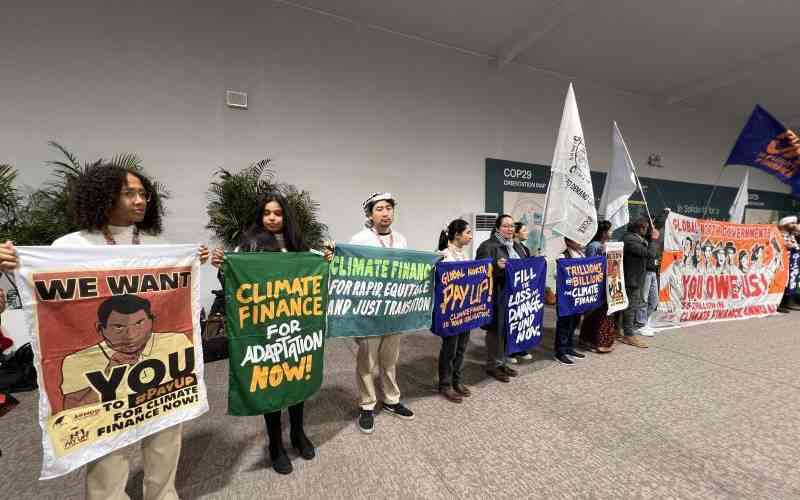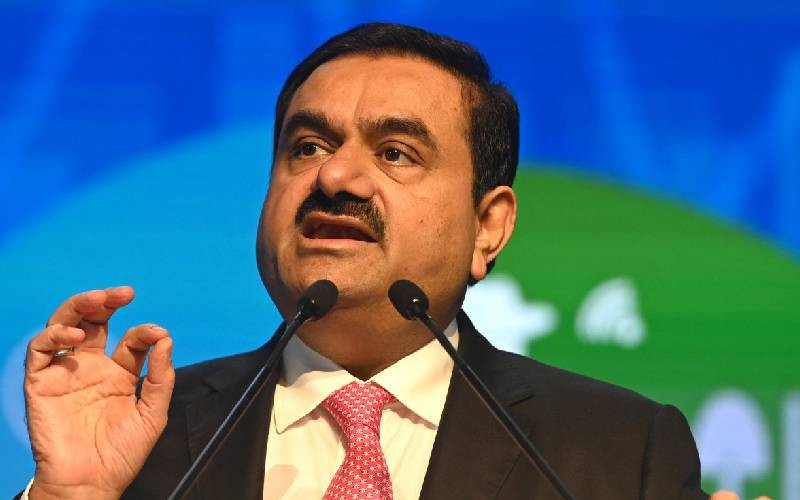
Green energy has emerged as a pivotal force in reshaping not just our energy landscape, but the very fabric of our society and economy.
Countries that have embraced renewable energy solutions as the cornerstone of their energy policies have long reaped the benefits of cleaner air, lower carbon footprints, and enhanced energy security.
Today's socio-economic challenges demand even more from us—an urgent transition from fossil fuels to sustainable energy sources
According to the International Renewable Energy Agency (IRENA), renewables could power 90 percent of the world by 2050, highlighting the compelling economic case for green energy investments. This should motivate every policymaker and business leader to prioritise renewable energy projects now more than ever.
One of the most accessible and transformative green energy sources available today is solar power. The global capacity of solar energy has skyrocketed from about 40 gigawatts in 2010 to over 710 gigawatts in 2020.
This remarkable growth underscores the increasing feasibility and affordability of solar technology. For countries aiming to achieve significant socio-economic growth, investing in solar power offers numerous benefits: job creation, reduced energy costs, improved public health, and enhanced energy security.
The ambitious goal of connecting as many households and businesses as possible to solar off-grid systems represents a clear path to sustainable development. In many developing countries, including Kenya, the lack of access to reliable electricity is a major impediment to economic and social progress.
According to the International Energy Agency (IEA), the number of people without access to electricity globally increased in 2022 for the first time in decades, rising by around 6 million to about 760 million, with a significant portion residing in Sub-Saharan Africa.
Solar off-grid solutions provide a viable and immediate answer to this problem, offering decentralised, scalable, and cost-effective energy access that can spur localised economic activity and improve the quality of life.
From an economic perspective, renewable energy projects can play a crucial role in lowering energy costs and insulating economies from the volatile price swings characteristic of fossil fuels.
The cost of solar photovoltaic (PV) panels has plummeted by almost 90 percent over the past decade, substantially lowering the levelized cost of electricity (LCOE) from solar energy. This trend is poised to continue, making solar power one of the most cost-effective energy solutions available.
But the vision for solar power extends beyond merely providing affordable energy. It is also about building resilience to climate change.
The increasing frequency and severity of climate-related events—droughts, floods, and heatwaves—have underscored the urgent need for resilient energy systems.
Solar power is inherently resistant to such disruptions, providing a stable and reliable source of energy even in the face of natural disasters. As climate impacts intensify, incorporating solar energy into our energy mix will become indispensable for maintaining economic stability and protecting vulnerable populations.
Stay informed. Subscribe to our newsletter
Harnessing the full potential of green energy requires more than just technological innovation; it demands robust financial commitment and strategic partnerships. Financial institutions play a critical role in facilitating the transition to renewable energy.
Our partnership with SBM Bank Kenya in an off-grid solar power project exemplifies the kind of collaboration needed to advance sustainable energy solutions.
Through targeted financing, banks and other financial entities can support the scaling of renewable projects, from large-scale solar farms to community-based microgrids, ensuring that green energy reaches all corners of society.
The argument for financing is bolstered by the evidence of tangible returns on investment in renewable energy. According to BloombergNEF, global investment in renewable energy surged to $282.2 billion in 2019, indicating strong market confidence in the sector.
Diversifying our energy portfolio with solar power can stimulate economic growth by generating employment opportunities in the manufacturing, installation, and maintenance sectors.
Another indispensable aspect of the green energy transition is policy support from governments. Regulatory frameworks that incentivise renewable energy adoption, such as tax credits, subsidies, and feed-in tariffs, have proven effective in accelerating the deployment of green technologies.
Governments must also focus on creating an enabling environment for private sector investment in renewable energy projects.
In addition to national policies, international cooperation is essential. Initiatives like the Paris Agreement underscore the global commitment to reducing greenhouse gas emissions. Countries must work together to share technological advancements, knowledge, and financial resources to achieve collective climate goals.
Dalmus Mbai is the CEO and Founder of Safer Power Limited
 The Standard Group Plc is a
multi-media organization with investments in media platforms spanning newspaper
print operations, television, radio broadcasting, digital and online services. The
Standard Group is recognized as a leading multi-media house in Kenya with a key
influence in matters of national and international interest.
The Standard Group Plc is a
multi-media organization with investments in media platforms spanning newspaper
print operations, television, radio broadcasting, digital and online services. The
Standard Group is recognized as a leading multi-media house in Kenya with a key
influence in matters of national and international interest.
 The Standard Group Plc is a
multi-media organization with investments in media platforms spanning newspaper
print operations, television, radio broadcasting, digital and online services. The
Standard Group is recognized as a leading multi-media house in Kenya with a key
influence in matters of national and international interest.
The Standard Group Plc is a
multi-media organization with investments in media platforms spanning newspaper
print operations, television, radio broadcasting, digital and online services. The
Standard Group is recognized as a leading multi-media house in Kenya with a key
influence in matters of national and international interest.









